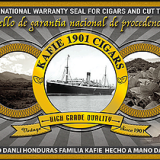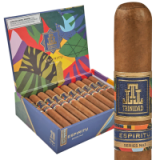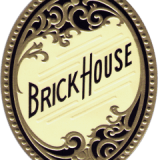Cigars have been a staple of many cultures for centuries. From the wealthy to everyday citizens, cigars have been enjoyed by people of all ages and backgrounds. While most cigars are produced with similar processes, the aging process can greatly affect the flavor and quality of a cigar. By investigating the impact of age on cigar flavoring, smokers can find the perfect blend to suit their tastes.
Contents:
When it comes to aging tobacco, there is no one-size-fits-all approach; each variety responds differently based on its origin and composition. Cigar aficionados know that when assessing a cigar’s quality, an aged leaf will often produce a more full-bodied smoke than one that has not undergone any aging process at all. The flavors present in aged tobaccos are unique; from subtle notes like cedar and leather to richer ones such as nuts or spices.
The length of time spent aging is also important when evaluating cigar flavoring; some varieties may require years before they reach their peak maturity while others take only months to reach optimal flavor profiles. In general, longer periods of aging lead to more pronounced flavors but this is not always true depending on type and brand of cigar being smoked. Certain types may be aged in barrels or cellars which can also add nuances in aroma and taste due to environmental factors like temperature or humidity levels inside these areas during maturation timespan.
Another factor that affects cigar flavoring is how long it has been stored after production before being purchased by customers – if kept too long it can lose much of its desired characteristics even though its color may remain unchanged – so buyers should always check expiration dates before making any purchases if possible. Storage conditions play an essential role in preserving both aroma and strength over time – humidors are specially designed containers used for storing cigars ensuring optimal humidity levels needed for proper preservation.
It’s important for smokers who want great tasting cigars to understand how age impacts flavor since different brands vary significantly in terms of maturation timespan needed before reaching peak performance. Understanding what goes into creating flavorful smokes can help novice smokers make informed decisions about which products best fit their preferences while experienced enthusiasts gain further insight into crafting perfectly blended cigars tailored specifically towards their own personal tastes.
Aging Process & Cigars
When it comes to cigars, the aging process is a key factor in developing flavor. Aging not only contributes to the complexity of flavors, but also changes the intensity of certain aromas and tastes. Through the process of aging, cigars acquire their distinctive taste and aroma which can range from mild to full-bodied depending on the blend used. The age at which a cigar has been aged can have an immense impact on its flavor profile.
The longer a cigar is aged, the more complex its flavor becomes due to oxidation and microbial action over time. As cigars age, they undergo chemical changes that break down starches into simpler sugars as well as enhance bouquet aromas like earthiness or sweetness. This allows for more subtle nuances in each puff while still maintaining balance between body and strength. Older cigars tend to burn slower with smoother draws allowing for greater control over temperature regulation during smoking sessions.
Cigars are typically aged anywhere from six months up to five years before being sold commercially; however there are some exceptions where limited edition releases have been aged significantly longer than that time frame before reaching store shelves around the world. Ultimately when selecting your favorite smoke it’s important to understand how much aging was done on them prior so you know what kind of flavors you’re getting yourself into!
Understanding the Flavor Profiles
The flavor profile of a cigar is an important part in the enjoyment and appreciation of its taste. Depending on one’s age, the flavor profile of a cigar can be drastically different. As cigars are aged, their flavors will change as well, creating a unique smoking experience for all ages.
Younger smokers may find that their cigars have more vibrant flavors such as pepper or spice which can give them an exciting smoke. On the other hand, older smokers might appreciate the mellow and smooth tastes that come from aging their cigars over time. This results in more subtle notes like woodiness or sweetness which gives them an enjoyable experience.
Aging also has an impact on how long a cigar’s flavor lasts after being smoked; younger cigars tend to have shorter-lasting flavors while those that have been aged longer will retain their taste much longer afterwards. By understanding the effects of aging on tobacco leaves, smokers can better choose what type of cigar best suits their desired taste and longevity preferences.
Chemical Changes in Tobacco Leaves
Tobacco leaves experience several chemical changes over time, which affect the flavor of cigars. As tobacco ages, it undergoes a process called fermentation, where bacteria and enzymes break down complex molecules into simpler compounds. This results in an increased concentration of organic acids such as acetic acid and lactic acid, as well as esters like ethyl acetate. These organic compounds give the smoke its distinctive taste and aroma.
Aging can cause certain volatile compounds to evaporate from the leaves while others are created through oxidation reactions. These processes contribute to the development of more robust flavors that cannot be achieved with younger tobaccos. For example, aged tobaccos tend to produce smoke with notes of cedar wood or nutmeg due to these chemical transformations.
Moreover, many cigar aficionados believe that aged tobacco produces a smoother smoke than unaged tobacco because it has less nicotine content; this is why some people prefer aged cigars for their milder flavor profile. Thus, investigating how age affects cigar flavoring is important for understanding how various components interact with each other in order to create unique flavors and aromas in cigars.
How Time Affects Taste
When tasting a cigar, the amount of time it has been aged can play a significant role in its flavor profile. Generally, cigars that have been aged longer will produce a much smoother smoke with enhanced flavor. This is due to the natural breakdown of essential oils and sugars that occur over time which gives the cigar an additional layer of complexity.
The length of aging can also alter how intense or subtle certain flavors are in the cigar. For instance, when compared to younger versions, older cigars tend to be less spicy and more mellow with notes of leather and earthiness becoming prominent. Some taste components like sweetness may become muted as they evaporate during the aging process while others like bitterness can be amplified over time.
In general, older cigars may provide a richer experience than those that are freshly rolled off the production line but this isn’t always true across all types of tobacco leaves or brands; so careful consideration should be taken when selecting cigars based on age alone. Ultimately it comes down to personal preference as there is no right or wrong answer when determining whether an aged cigar provides better flavor than one without any aging at all.
Enhancing Aroma Through Aging
When it comes to cigar flavoring, many connoisseurs understand the importance of aging. Aging not only improves a cigar’s strength and taste but also enhances its aroma. Through a process known as “cellaring,” cigars are stored in humidors for months or even years, allowing the tobacco to age and mature over time.
Aging cigars has been practiced since ancient times and is still an integral part of creating flavorful smokes today. As the leaves age, they become softer and more malleable, which allows their flavorings to develop more fully than those that are freshly harvested. This can result in bolder aromas with deeper complexity when compared to unaged cigars. Older tobaccos have less harshness on the palate due to the breakdown of certain compounds during maturation.
The length of time that a cigar needs to be aged varies depending on several factors such as type of tobacco used, size of the stick, climate conditions within the humidor and overall desired flavors from smoking experience. However one thing remains constant: The longer you wait for your stogies to age, the better quality smoke you will enjoy.
Different Types of Aging Techniques
When it comes to the flavoring of cigars, age is a major factor. A cigar’s age can affect its flavor in many ways and the aging techniques used by cigar makers play an important role in this process. Two common methods for aging tobacco are fermentation and cedar-aging.
Fermentation is a lengthy process which involves carefully controlling temperatures, humidity levels and air circulation within warehouses to ensure that the leaves reach their peak potential in terms of aroma and flavor. During this stage, compounds found naturally in the tobacco leaves break down into simpler molecules that interact with each other to create unique flavors. This method has been used for centuries and continues to be utilized today as a reliable way of ensuring consistent quality between batches of cigars.
Cedar-aging is another popular technique for flavoring cigars which involves storing them in cedar-lined cabinets or drawers. The wood absorbs moisture from the air around it, allowing some of its natural oils to be released into the surrounding environment while also providing additional complexity to the flavors present in aged tobacco leaves. Cedar-aged cigars tend to have more complex aromas than those made with just fermented tobaccos, making them ideal for experienced smokers looking for something special when they light up a stick.
No matter what type of aging technique you prefer, there’s no denying that both have their own distinct effects on cigar flavor profiles – so take your time exploring all your options before settling on one.
Uncovering Subtle Notes
The process of aging cigars is an art that has been perfected over centuries. As time passes, the flavors and aromas of a cigar can change in myriad ways. These subtle notes are often only perceptible to experienced smokers who have developed their palates for different flavor profiles. Investigating the impact of age on cigar flavoring requires knowledge and experience, as well as a deep understanding of tobacco composition.
The complexity and nuances of aged tobaccos become more pronounced with each passing year, adding further layers to already complex flavor profiles. While younger cigars may provide bold flavors such as spice or pepper, older versions will display additional subtleties such as leather, nuts or earthiness. It is this depth of flavor which makes aged cigars so special – they offer an incredibly rich experience that cannot be replicated by any other means.
Cigar aficionados understand these differences better than most, having developed their palates over many years to discern between various notes and nuances within different types of tobaccos. As such, they are able to identify characteristics in aged tobaccos which others may miss entirely due to lack of experience or knowledge in the area. This appreciation for fine detail helps them appreciate all aspects of a cigar’s character – from its aroma right through to its lingering finish – providing them with an unparalleled smoking experience every single time.
The Joy of Age-Influenced Flavor
Ageing cigars is a fascinating process that results in flavor and taste transformations. These modifications are caused by the interactions between the components of tobacco leaves, as well as their reactions to oxygen, heat and moisture. As time passes, these changes take place which cause the cigar’s aroma and taste to become more intense. The subtle differences between an aged cigar versus one that has not been allowed to age can be remarkable; it provides aficionados with a unique sensory experience.
The appreciation of ageing cigars relies on understanding how its flavor changes over time. Most smokers prefer cigars that have had some aging since they believe it enhances its complexity and allows them to better appreciate nuances in the blend. With this knowledge, aficionados can determine when a particular blend is ready for consumption or if it needs further aging before being enjoyed at its peak performance level.
Age-influenced flavoring also affects the strength of a cigar; older tobaccos tend to be milder than younger ones due to certain compounds breaking down over time and causing less nicotine release when smoked. This can provide relief for those who find overly strong smokes uncomfortable but still desire flavorful options from their favorite blends. It’s important to note however that too much age will ultimately lead to deterioration of flavors so there’s always a delicate balance that must be achieved when deciding whether or not you should let your cigars rest longer before smoking them up.











